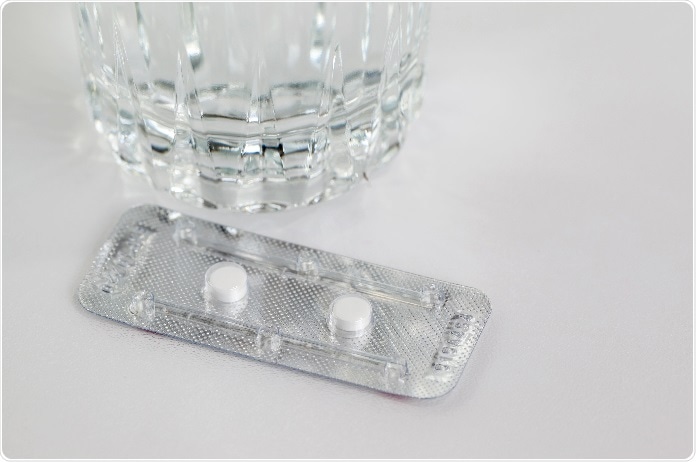Contraception methods are used to prevent an unwanted pregnancy. Emergency contraception is required when a couple has unprotected sex or if the contraceptive method they use is compromised. It is also used in cases of sexual assault where the woman’s modesty has been compromised.

Credit: Addyvanich / Shutterstock.com
Incorrect use of contraceptives may also require emergency contraception. This could be seen as a condom that burst during intercourse, causing the semen to spill, or if the woman forgets to take her birth control pill on time.
Types of emergency contraception
Emergency contraceptives are usually employed within 5 days of the woman having sexual intercourse that may lead to a pregnancy. There are essentially two types of emergency contraception methods available - the first is a pill that the woman can swallow and the second is an intrauterine device which is inserted into the uterus.
Emergency contraceptive pill
This is a pill which needs to be consumed within 72 hours of sexual intercourse. It prevents or delays the release of egg so that fertilization is not possible. These are also called the “morning after pills.” They are effective in up to 94% of cases based on a WHO study. The sooner the pill is ingested after sexual intercourse, the more effective it is at preventing pregnancy.
Intrauterine device (IUD)
This device needs to be inserted into the uterus within 5 days after unprotected sexual intercourse. It stops the egg from being fertilized as well as implanting itself in the womb. The copper bearing IUD will cause a chemical change in the sperm and egg, which prevents fertilization. As per the WHO study, this method is 99% effective and is associated with a low risk of infection. It is not recommended for those suffering from a pelvic inflammatory disease, active gonorrhea or chlamydia infections.
The Yuzpe method
There is a combination of oral contraceptive pills used in this method. The pills must contain estrogen and progestin. The chemical names to look for are ethinyl estradiol in a quantity of 100-120 mcg, levonorgestrel of about 0.50- 0.60 mg or 1.0 – 1.2 mg of norgestrel. This contraception method is more likely than others to cause nausea and vomiting due to the high concentration of the dose.
The pills are taken in two doses and the first dose is recommended as soon as possible after sexual intercourse. The second dose is to be consumed 12 hours after the first. Should there be any vomiting after taking the dose, the medication will need to be taken again to ensure that the medication enters the system.
Effect of emergency contraceptive pills on the body
There are a number of side effects of using an emergency contraceptive pill but they do not seem to cause any long term issues. Not everyone may suffer all side effects but, in general, those who have consumed the pill have reported stomach pain, headaches, dizziness, tenderness in the breast region, and a general feeling of exhaustion.
The menstrual cycle is also affected by emergency contraceptive pills. Some may have spotting almost immediately after the pill is consumed; others may experience heavier bleeding at the next menses. There may be irregular bleeding even before the menstruation is due. If the period is delayed beyond 7 days of its expected date, please consult your doctor to check for possible pregnancy.
Emergency Contraception Mode of Action Animation
In rare cases, a sudden pain in the lower abdominal region may be a symptom of an ectopic pregnancy. This is the condition where an egg gets fertilized and implanted outside the womb. While extremely rare, the condition is very serious. It will require immediate attention from a doctor. It is, therefore, important that one does not ignore abdominal pain if it is severe and consistent.
Who can use emergency contraception?
Almost any woman who wishes to avoid an unintended pregnancy can use emergency contraception. With this said, the legislation regarding the use of emergency contraception keeps changing; whilst some contraceptive pills are available over the counter for unrestricted sales, others require a prescription from the health care provider.
As per the WHO, all females at risk of an unplanned pregnancy should have the ability to stop it using emergency contraception. Unfortunately, most health care service providers in many countries do not integrate emergency contraception with general health care. As a result of this, many females are not aware of this option.
Medical reasons where emergency contraception may not be effective can exist. For instance, contraceptive pills are not as effective for obese women with a BMI of over 30. Additionally, these pills should not be used for a woman who is already pregnant; these are not abortion pills.
Similarly the copper IUD may not be appropriate for some women. Those having pelvic inflammatory disease, endometrial cancer, thrombo-cytopenia, and inexplicable bleeding in the vaginal region should not use the IUD.
In all cases the female should consult with a doctor before taking any form of emergency contraception.
References:
Further Reading
Last Updated: Dec 29, 2022